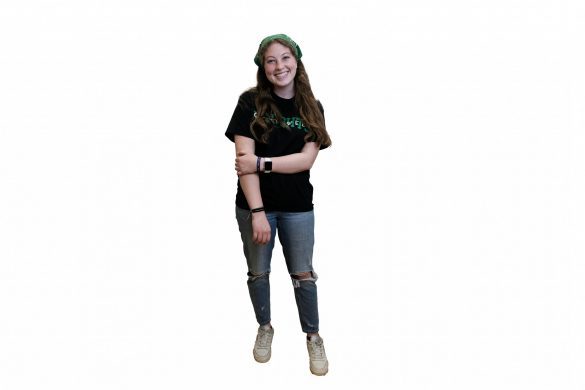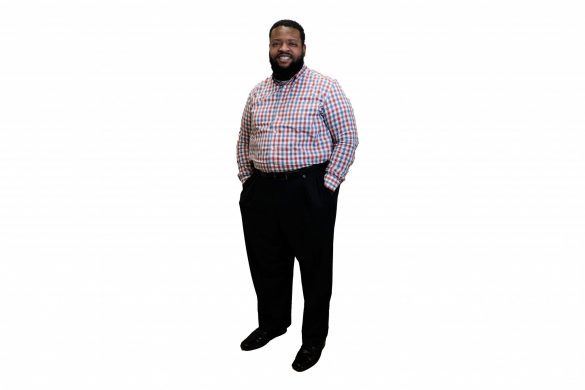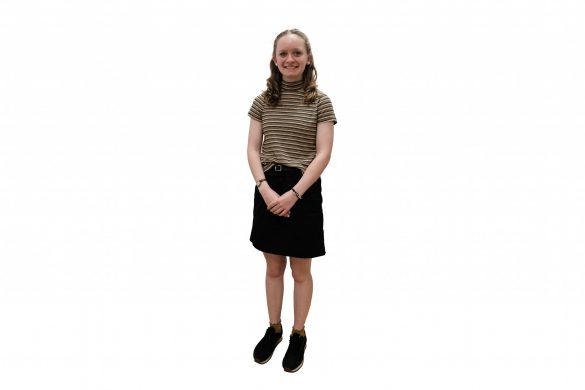Written by Jair Lopez
Recuerdo ese jueves 12 de marzo, a tan solo un par de días de terminar nuestras vacaciones de primavera me encontraba hospedado en el hogar de una familia en Searcy, cuando todos recibimos un correo en el que se nos pedía no regresar al campus.
Durante esos días, las noticias dejaban ver que la pandemia ya representaba un potencial riesgo en Latinoamérica. Se hablaba de las estrictas medidas que muchos países estaban tomando frente al nuevo virus. Cuando la universidad informó la suspensión de actividades académicas presenciales, la mayoría de estudiantes internacionales empezaron a agendar vuelos para regresar a sus países.
En El Salvador, todas las personas que entraban al país necesitaban someterse a una cuarentena estricta en centros de albergue antes de entrar al territorio. En aquel momento mi mejor opción era quedarme en mi dormitorio y esperar que el manejo de pasajeros se agilizará en mi país. Unos cuantos días después, a pesar de no tener ningún caso, el gobierno salvadoreño anunció cuarentena total, cierre de fronteras y aeropuertos. Durante los primeros días algo me decía que la situación solo duraría unas pocas semanas y que todos podrían regresar para terminar el semestre normalmente o que podría ir a casa. Pero a medida que las semanas pasaban, la gestión sanitaria no parecía mejorar, el número de casos aumentaba, y crecía la incertidumbre de no poder estar con mi familia por un largo tiempo.
Gracias a las autoridades de la universidad y al programa de becas del que soy parte, pude hospedarme en campus, terminar mi semestre de primavera en línea y aun tomar cursos durante el verano. Después de mayo, el campus parecía realmente un desierto. Viendo atrás pareciera que el tiempo paso volando, pero en realidad fueron alrededor de cinco meses viviendo en un campus prácticamente vacío. Solo acompañado de unos cuantos estudiantes internacionales que se encontraban en mi misma situación.
Fue agradable ver como todos regresaban en otoño. Y a pesar de las incontables restricciones, había esperanza de recuperar un poco la normalidad. No fue hasta agosto de 2020 que El Salvador tuvo una reapertura total y los aeropuertos normalizaron su actividad. A mediados del semestre, recibí la noticia que viajaría a casa para pasar mis vacaciones de navidad. No hay palabras para describir lo emocionante que fue ver a mi familia y abrazarles después de casi dieciséis meses después.
La pandemia representó una etapa de crecimiento personal para mi dónde aprendí la importancia de adaptarse situaciones no tan agradables, y a ser agradecido con Dios. Modifiqué mi rutina, desarrollé nuevos hábitos, y trabajé áreas de mi vida en las que solo hubiera podido enfocarme en una temporada de “pausa” como la que estábamos viviendo.
I still remember that Thursday, just a few days before spring break was over: I was staying with a family in Searcy, Arkansas, when every student received an email asking us not to return to campus. During previous weeks, the news showed how the pandemic already represented a potential problem for Latin American countries. Many nations started to call for strict and even radical measures against the new virus. When the University informed us about the suspension of academic activities on campus, the great majority of international students started scheduling flights and getting ready to go back to their home countries.
El Salvador established in early March that every person arriving to the country needed to go through a strict quarantine in temporary “containment centers.” My best alternative at the moment was to stay in my dorm and wait for the passenger handling to improve. A few days later, despite not having any COVID-19 cases yet, the Salvadoran government announced the imposition of a national quarantine and the closure of borders and airports. At that moment, something was telling me that the situation would only last a few weeks and that everybody would be able to return to campus and finish the semester or that, at least, I would be able to go home soon. But as the days passed, the health management didn’t seem to get better, and the number of cases kept rising in my country. There was so much uncertainty, along with the growing sensation that I would not be able to see my family for a long time.
Thanks to the University and my scholarship program, I was able to stay in the dorms, finish my spring semester online and even take some summer courses. After May, the whole campus certainly appeared deserted, except for the presence of some staff, people working on remodeling and some other international students that were in the same situation as me. Looking back, it seems like the days went by so fast, but in reality, it was around five months living in a quiet and almost empty campus.
It was so nice to see people coming back for the fall semester. Despite the many social distancing restrictions, there seemed to be hope to get back some of the old normalcy. It was not until August that El Salvador reopened and airport activity started to normalize. We were halfway through the semester when I knew I would be able to fly back to spend Christmas break at home. I still have no words to describe how exciting it was to hug my family after about 16 months since the last time I had seen them.
Last summer, the pandemic, for me, was a growing season where I learned the importance of adapting and being thankful to God, even in situations in life that do not seem so nice. There were a lot of changes in my routines; I had to develop new habits, but I also had the chance to work on areas of my life that I would have only been able to focus on during a “pause season” like the one we all lived last year.





